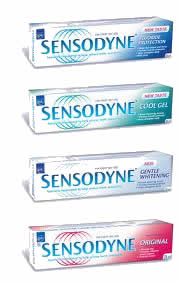CLINICAL APPLICATION OF TUMOUR MARKERS: A REvIEw
Abstract
Background: Tumour markers have made a difference to oncology practice. They can
be used in screening, diagnosis, prognostication and assessment of treatment efficacy.
Reports on tumour marker usage suggest that many clinicians assume that a biomarker
for a particular cancer can be effectively used for all these indications. This assumption
is incorrect. Several guidelines have been published to inform clinicians on effective
utilisation of these tests.
Objective: To outline the recommended uses of the most commonly requested tumours
markers in clinical practice.
Design: A hand search of literature on the recommended use of carcinoembryonic
antigen (CEA), alphafetoprotein (AFP), prostate specific antigen (PSA), CA-125 and
CA-19.9. Systematic reviews and prospective randomised clinical trials of tumour
marker applications were also looked at.
Data sources: Five key journals and reference lists of relevant studies were
considered.
Data extraction and synthesis: Two authors abstracted relevant data independently.
Emphasis was given to guidelines from expert panels. The quality of the guidelines
was assessed by availability of level of evidence supporting the recommendations.
Results: Several national and international expert groups have developed guidelines
for use of markers for most cancers. CEA, AFP, PSA, CA-125 and CA-19.9 are validated
for use in treatment monitoring of colorectal, hepatocellular, prostatic, ovarian and
pancreatic carcinomas respectively. AFP and PSA are also useful for cancer screening
in high risk groups. CA-125 has limited role in screening while CEA and CA 19.9 are
not recommended for cancer screening.
Conclusions: Not all currently available tumour markers can be used for screening
and diagnosis of malignancies. Adherence to recommendations on tumour marker
utilisation will improve the cost-effectiveness of these tests.
be used in screening, diagnosis, prognostication and assessment of treatment efficacy.
Reports on tumour marker usage suggest that many clinicians assume that a biomarker
for a particular cancer can be effectively used for all these indications. This assumption
is incorrect. Several guidelines have been published to inform clinicians on effective
utilisation of these tests.
Objective: To outline the recommended uses of the most commonly requested tumours
markers in clinical practice.
Design: A hand search of literature on the recommended use of carcinoembryonic
antigen (CEA), alphafetoprotein (AFP), prostate specific antigen (PSA), CA-125 and
CA-19.9. Systematic reviews and prospective randomised clinical trials of tumour
marker applications were also looked at.
Data sources: Five key journals and reference lists of relevant studies were
considered.
Data extraction and synthesis: Two authors abstracted relevant data independently.
Emphasis was given to guidelines from expert panels. The quality of the guidelines
was assessed by availability of level of evidence supporting the recommendations.
Results: Several national and international expert groups have developed guidelines
for use of markers for most cancers. CEA, AFP, PSA, CA-125 and CA-19.9 are validated
for use in treatment monitoring of colorectal, hepatocellular, prostatic, ovarian and
pancreatic carcinomas respectively. AFP and PSA are also useful for cancer screening
in high risk groups. CA-125 has limited role in screening while CEA and CA 19.9 are
not recommended for cancer screening.
Conclusions: Not all currently available tumour markers can be used for screening
and diagnosis of malignancies. Adherence to recommendations on tumour marker
utilisation will improve the cost-effectiveness of these tests.
Refbacks
- There are currently no refbacks.


